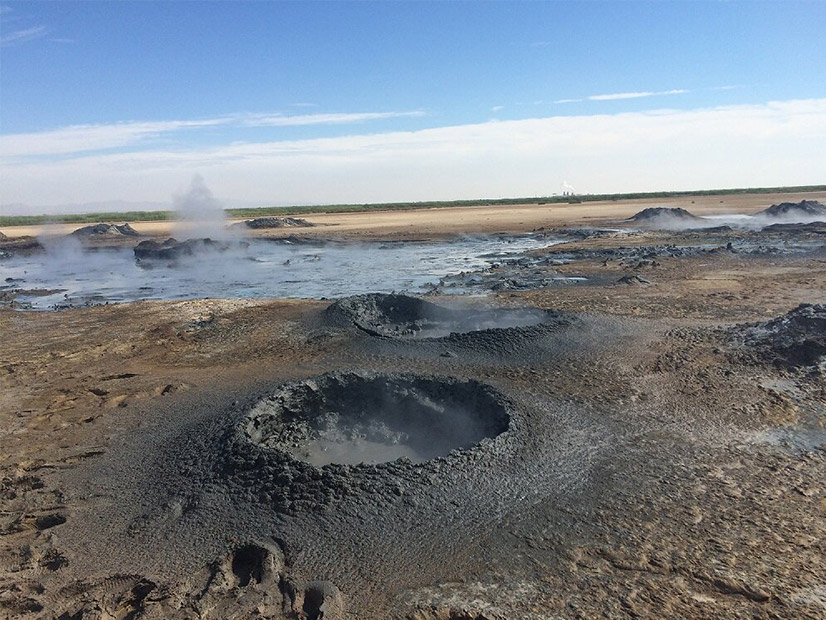Berkshire Hathaway Energy plans to break ground within weeks on a Southern California demonstration plant that will extract lithium from brine pumped from geothermal wells at the Salton Sea.
Jonathan Weisgall, vice president for government relations at BHE, discussed the company’s plans Wednesday during a meeting of the state Assembly’s Select Committee on California’s Lithium Economy.
BHE owns and operates 10 geothermal plants next to the Salton Sea, which produce 350 MW of power, Weisgall said. The company’s 21 geothermal wells bring up chemical-rich brine that contains about 250 parts per million of lithium, he said.
The company is able to separate lithium from other chemicals in the brine using an ion-exchange technology that Weisgall described as a “molecular sieve.” He said the next question is whether the technique, which works in the laboratory, is effective at recovering lithium at commercial scale.
To help answer that question, BHE applied for and received a $6 million grant from the California Energy Commission to build a one-tenth scale demonstration plant.
BHE also received a $15 million grant from the U.S. Department of Energy to build a demonstration plant for converting lithium chloride obtained in the first phase to lithium hydroxide, a raw material used in battery production. BHE matched both grants with its own money, for a total of $42 million in funding.
Weisgall said the first demonstration plant could be in operation by January, with the lithium hydroxide plant following by the end of next year. If all goes well, construction of a full-scale lithium plant could start as soon as 2024.
‘Lithium Valley’ Envisioned
The demonstration project is one step toward what is being envisioned as a “Lithium Valley” in the Salton Sea area. Demand is growing for lithium, which is a key component of batteries used in electric vehicles. The Salton Sea appears to be a rich source of the metal.
“If we can recover that lithium … we could actually produce as much as 90,000 tons a year in a world market today of about 300,000,” Weisgall said. “So, we could easily supply at least a quarter of current world demand.”
Wednesday was the first meeting of the Select Committee on California’s Lithium Economy, which is chaired by Assemblyman Eduardo Garcia (D).
Garcia said the committee would complement another recently formed panel, the Lithium Valley Commission, convened by the CEC. That panel, whose formal name is the Blue Ribbon Commission on Lithium Extraction, was formed by statute last year and began meeting in February. (See California Lithium Extraction Plan Advances.) The commission’s final report to the state legislature is due by Oct. 1, 2022.
Environmental Advantages
Rod Colwell, CEO of Controlled Thermal Resources, noted some of the environmental advantages of lithium recovery from brine at the Salton Sea. CTR received a $1.46 million grant from the CEC last year for its Hell’s Kitchen geothermal lithium extraction pilot program at the Salton Sea, along with $3 million for improved silica removal technology for enhanced geothermal plant performance.
Colwell said the physical footprint of lithium operations at the Salton Sea would be much smaller than those needed in open-pit mines or evaporation ponds. Production would be powered by renewable energy.
And the lithium chloride and lithium hydroxide that will be produced from Lithium Valley will be battery grade, Colwell said, with no need to send it to China for processing.
Weisgall said another advantage to a potential Lithium Valley at the Salton Sea is that lithium production could be a “catalyst to revive the geothermal power industry.” Geothermal power is not currently cost-competitive with solar and wind energy, he said.
“In a way, lithium can be the tail that wags the geothermal dog,” Weisgall said. “If you can get that secondary stream of income going from lithium, you can reduce the cost of that geothermal power. We see a lot of synergies here.”




